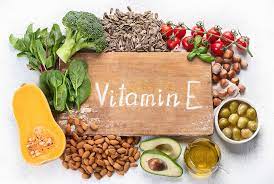
Breaking News
 The Prostate Cancer Test Dilemma
The Prostate Cancer Test Dilemma
 The Separation of Righteousness and Politics
The Separation of Righteousness and Politics
 Russian strike knocks out power in Kyiv FRANCE 24 English
Russian strike knocks out power in Kyiv FRANCE 24 English
 CLAIM: Bitcoin is going to ZERO folks – HOLY SCHLIT! Benny Johnson and Mike Benz on it
CLAIM: Bitcoin is going to ZERO folks – HOLY SCHLIT! Benny Johnson and Mike Benz on it
Top Tech News
 How underwater 3D printing could soon transform maritime construction
How underwater 3D printing could soon transform maritime construction
 Smart soldering iron packs a camera to show you what you're doing
Smart soldering iron packs a camera to show you what you're doing
 Look, no hands: Flying umbrella follows user through the rain
Look, no hands: Flying umbrella follows user through the rain
 Critical Linux Warning: 800,000 Devices Are EXPOSED
Critical Linux Warning: 800,000 Devices Are EXPOSED
 'Brave New World': IVF Company's Eugenics Tool Lets Couples Pick 'Best' Baby, Di
'Brave New World': IVF Company's Eugenics Tool Lets Couples Pick 'Best' Baby, Di
 The smartphone just fired a warning shot at the camera industry.
The smartphone just fired a warning shot at the camera industry.
 A revolutionary breakthrough in dental science is changing how we fight tooth decay
A revolutionary breakthrough in dental science is changing how we fight tooth decay
 Docan Energy "Panda": 32kWh for $2,530!
Docan Energy "Panda": 32kWh for $2,530!
 Rugged phone with multi-day battery life doubles as a 1080p projector
Rugged phone with multi-day battery life doubles as a 1080p projector
 4 Sisters Invent Electric Tractor with Mom and Dad and it's Selling in 5 Countries
4 Sisters Invent Electric Tractor with Mom and Dad and it's Selling in 5 Countries
Vitamin E Helps Decrease Your Cancer Risk

It also plays a role in the making of red blood cells, helps your body use vitamin K (which is important for heart health1) and is involved in your immune function and cell signaling. As with many other nutrients, many do not get enough of this basic micronutrient from their diet.
In the U.S. alone, 75% to 90% of the population fails to reach the recommended dietary allowance (RDA) of vitamin E.2,3 The RDA for people over the age of 14 is 15 milligrams of vitamin E per day, but most Americans get only half that amount.4 Insufficient vitamin E can increase your risk for a wide variety of diseases, including immune dysfunction, cognitive deterioration, cardiovascular disease and certain cancers,5 especially prostate, colon and lung cancers.6,7



